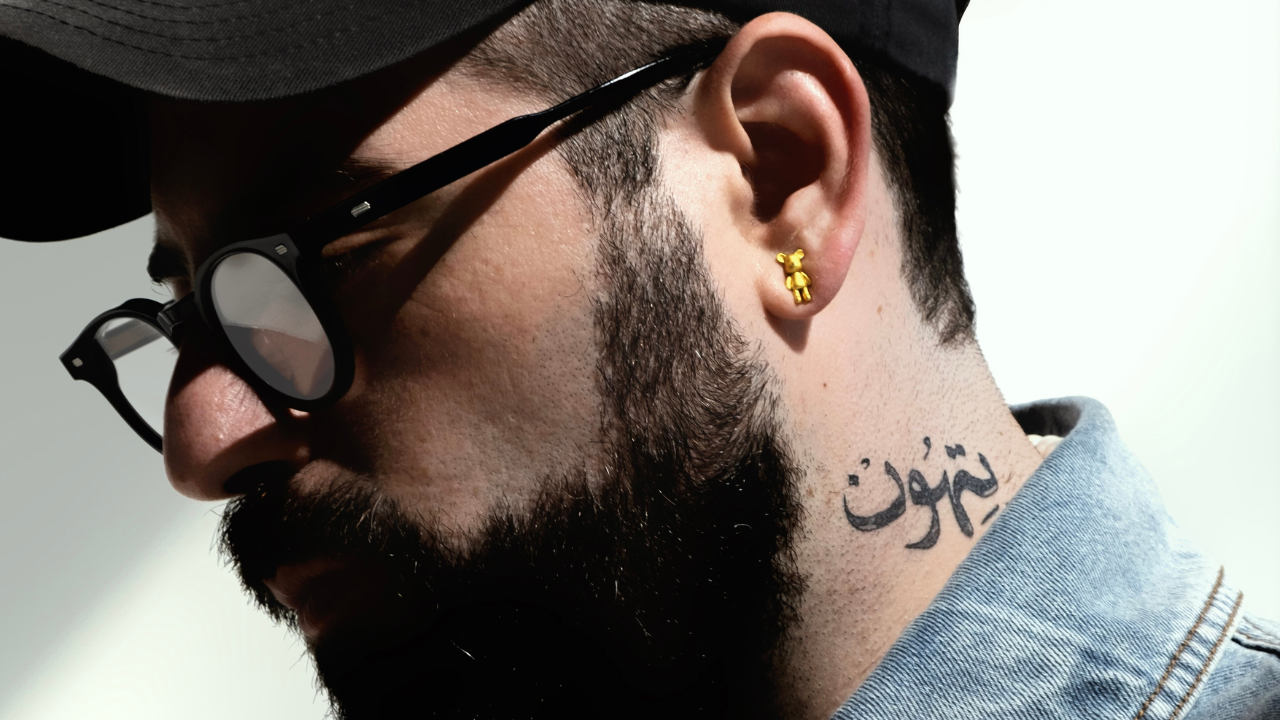
In a region witnessing a surge of talented artists, Lebanese-born Ali Cha’aban stands out as a visionary driven by necessity. Ali’s journey as an artist challenges the daunting perception of pursuing one of the most intimidating creative fields, as he became part of the butterfly effect that has given rise to incredible Arab artists. In fact, Ali didn’t always aspire to become a creative. While studying for pre-med, the desire to express his thoughts on social and political events through visual representations evoked the artist in him. However, that gradually transformed into a desire to become a storyteller of sorts.
Speaking to GRAZIA exclusively, Ali shares that his latest concept where he reimagines Beirut, took shape while preparing for his upcoming show, ‘I Guess I’m Still Angry.’ The introspective exhibition delves into his bipolar disorder and its impact on his work and thought process. Exploring childhood memories tainted by war, Ali strives to recreate utopian moments from his youth that were overshadowed by sadness.
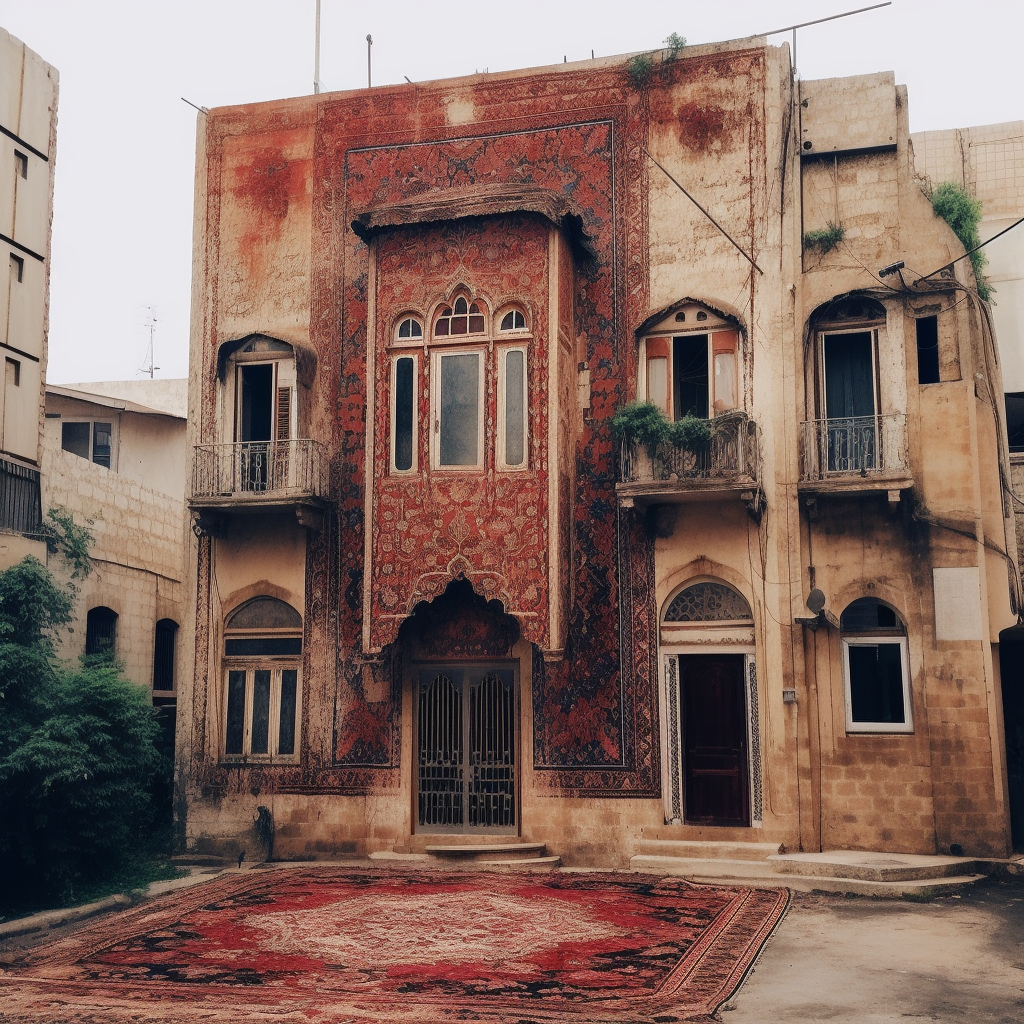
The artworks reimagining Beirut are split into two; Beirut Utopia and Beirut Dystopia. As an early sneak peak for his upcoming show, the multi disciplinary artist recently shared his work on his social media account where he was met with praise. While scrolling through the images, you can see threads woven into the patterns of carpet motifs against the ordinary structures of Beirut; some intact while others are surrounded by ruins. In Beirut Dystopia, the placement of the gun and the war tank among the trees and Coca-Cola bottle might strike you as surreal, but not when you are reminded that they are fragments of memories from Ali’s childhood. For most that grew up in war-torn countries, the juxtaposition of these contradicting elements make sense.
When a follower left a comment on his Instagram post with concerns about using artificial intelligence (AI) as the medium to create the work, Ali responded by saying that “art is evolving,” and he’s not wrong. With the recent progress in technology, there’s a never-ending discourse on utilising AI with art. When asked about the topic, Ali holds an open-minded perspective. Initially hesitant, he now acknowledges the benefits of AI in materialising ideas that exceed his capabilities. “I’m not biased to any medium used by artists,” he shares.
Discover Our Latest Photoshoot: Rolling In The Deep
“It’s a double edge sword; it should be a tool to help you but not to rely on it always; codependency can suck your artistic integrity.”
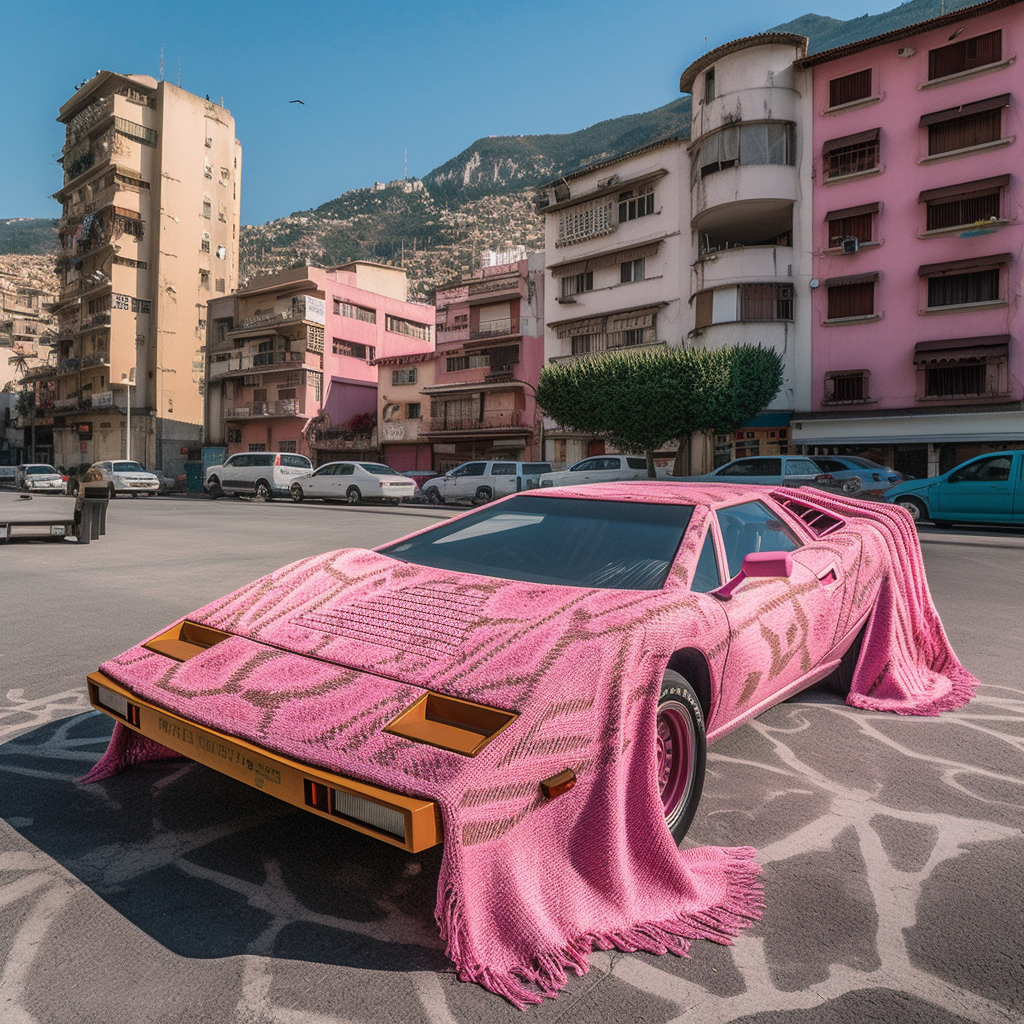
Within Ali’s artistic repertoire, carpets take on a significant role as a recurring motif. Ali explains, “the reason I use carpet motifs is I think it represents the Arab individual with the intricate intertwined design and it tends to reflect our complex and detailed identity.” He went on to elaborate how layers of thread interwoven to create a carpet piece resembles the complexity of humanity, “we resonate with these motifs, and we tend to gravitate towards them because we feel it’s part of our culture and identity. The carpets represent the Arab individual because it has no social status; you’ll find it in rich or poor houses, whether it’s the expensive Persian silk or the Turkistani machine-made.”
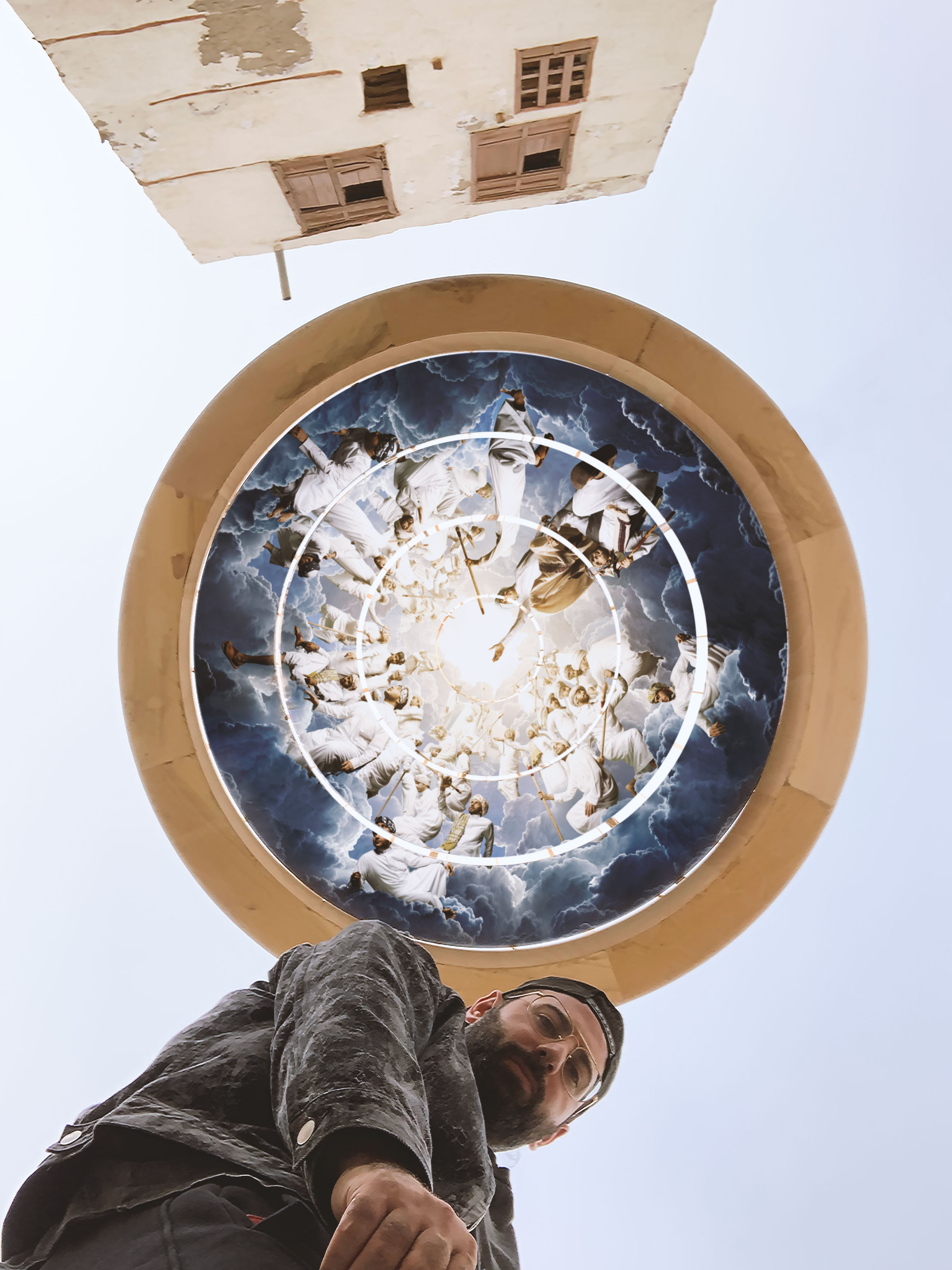
When asked which of his artwork epitomises his self-expression the most, Ali says it’s challenging to single out one. “That’s a tough question,” he admits. “Because for artists we tend to see our artwork as our baby, we produce it and allow our baby to be crucified by the world. Criticised or appreciated; the work becomes a part of you.” If anything I would say the paper-plane represents me the most; because it explores the thinking majority in class; the people that want to think outside the box so they float above the walls that constrain them.
However, he identifies the paper plane as a representation of his persona, “because it explores the thinking majority in class; the people that want to think outside the box so they float above the walls that constrain them.”
Read More: Bre Tiesi On Botox, Bodies After Babies And Being Real About Beauty Standards
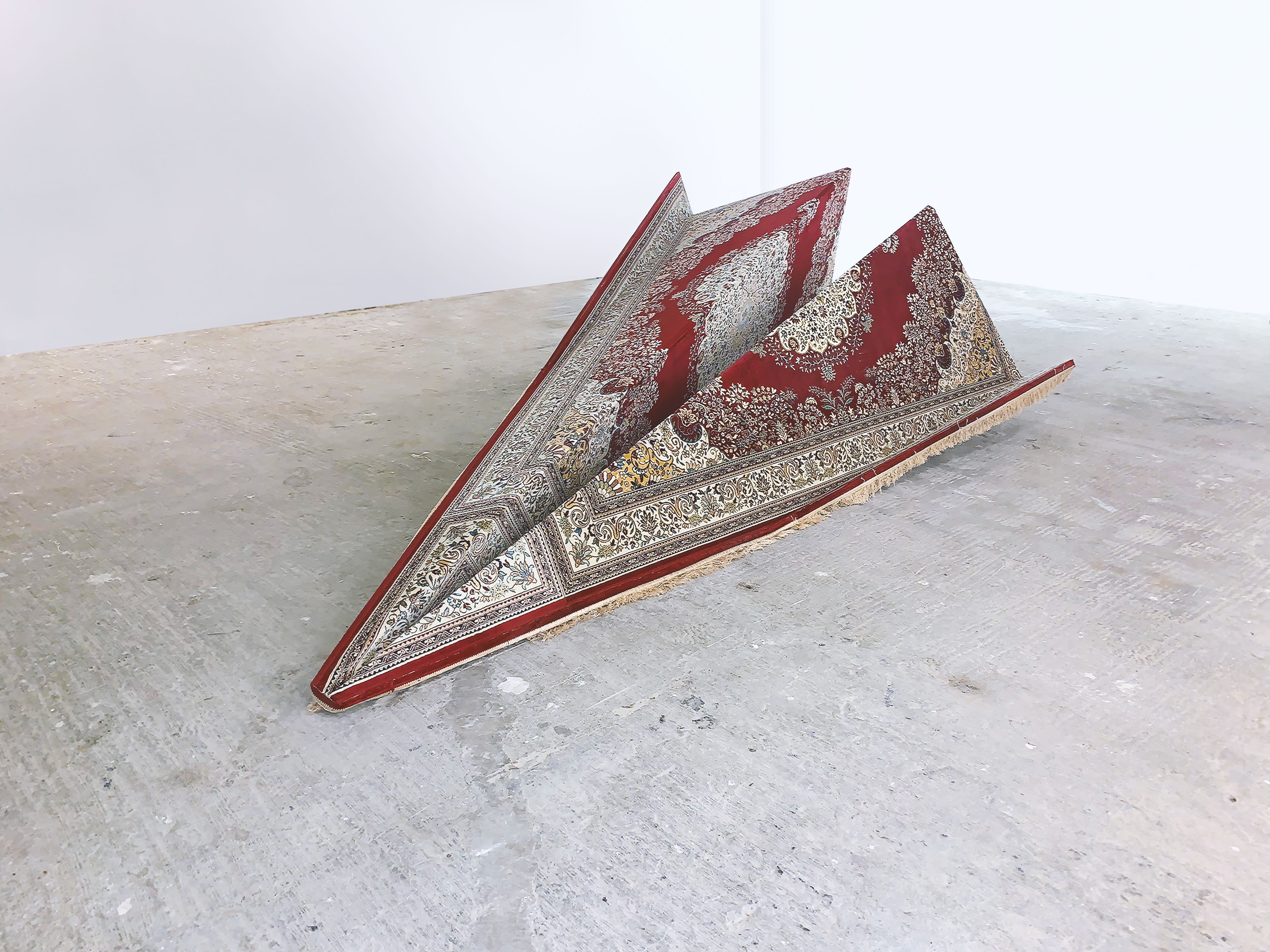
“For artists we tend to see our artwork as our baby, we produce it and allow our baby to be crucified by the world. Criticised or appreciated; the work becomes a part of you.”
While social media platforms have provided artists with the opportunity to reach a broader audience, their algorithms often divert attention towards content that garner the highest engagement, potentially veering artists away from their original message. Navigating the complexities of social media, Ali looks beyond algorithms and perceives these platforms as virtual galleries showcasing his work. He encourages artists to break free from the pursuit of validation and instead focus on artistic expression. “Don’t create for people’s validation, create because you want to create. Also, try to navigate between what is complex artwork that is made for gallery shows and art that is more for social commentary.” By understanding their platform and artistic appeal, artists can maintain authenticity in their creations. “Not everything I post should be “artistic” or art-related, I’m a human at the end of the day,” he declares.
Read More: Saudi Creatives Set Showcase At Emerge Pop-up Event In Paris
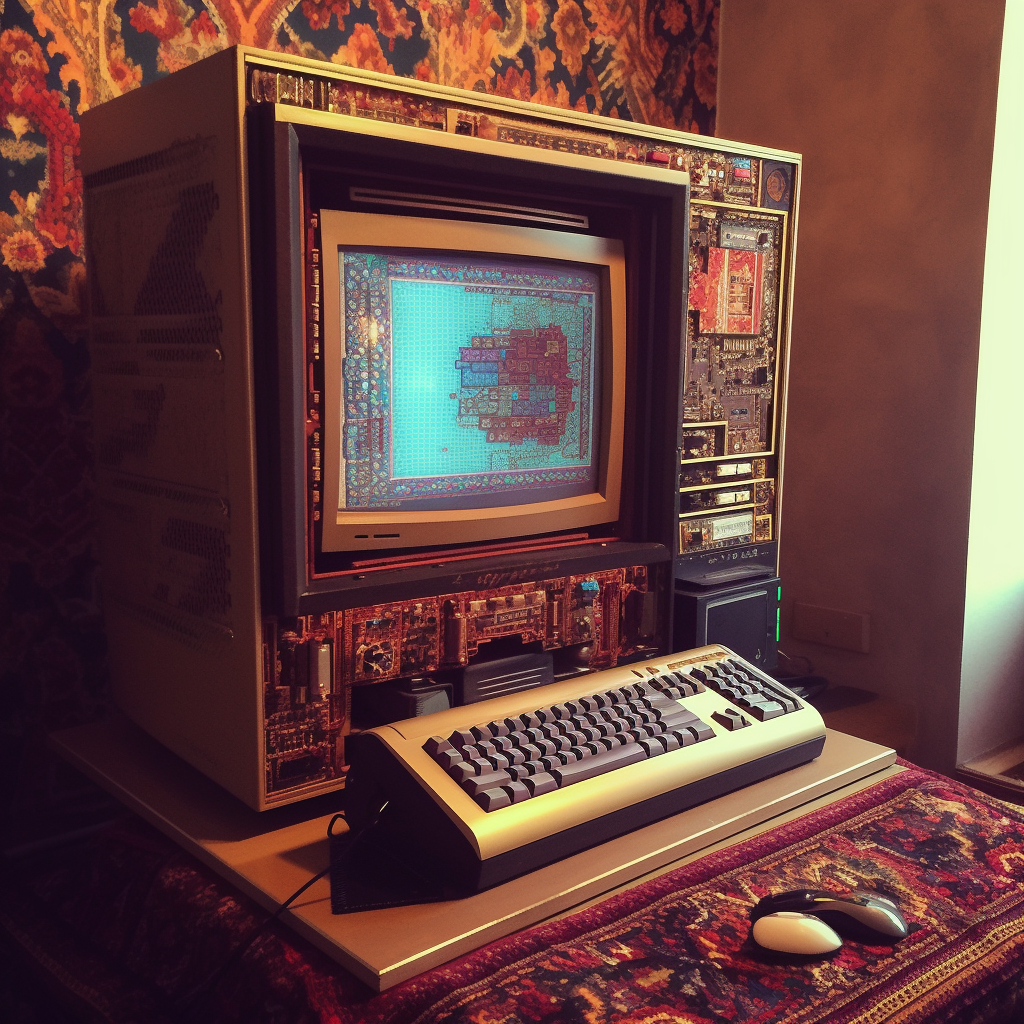
“Not everything I post should be “artistic” or art-related, I’m a human at the end of the day.”
Reflecting on the transformation of the Arab art world, Ali recognises the remarkable rise of Arab artists and their impact on pushing artistic boundaries. “I like that Arabic art is on the rise, as we now have our own Biennale in Saudi Arabia, which is a big step for us Arab artists.” However, he calls for a distinction between Arabic contemporary art and Islamic contemporary art, while cautioning against falling into the trap of Orientalism. “We’re appropriating our own culture because it’s a trend. Try to be sincere; have a thorough search as well as a deep understanding of the stigmas of Arabs and as their secularism.”
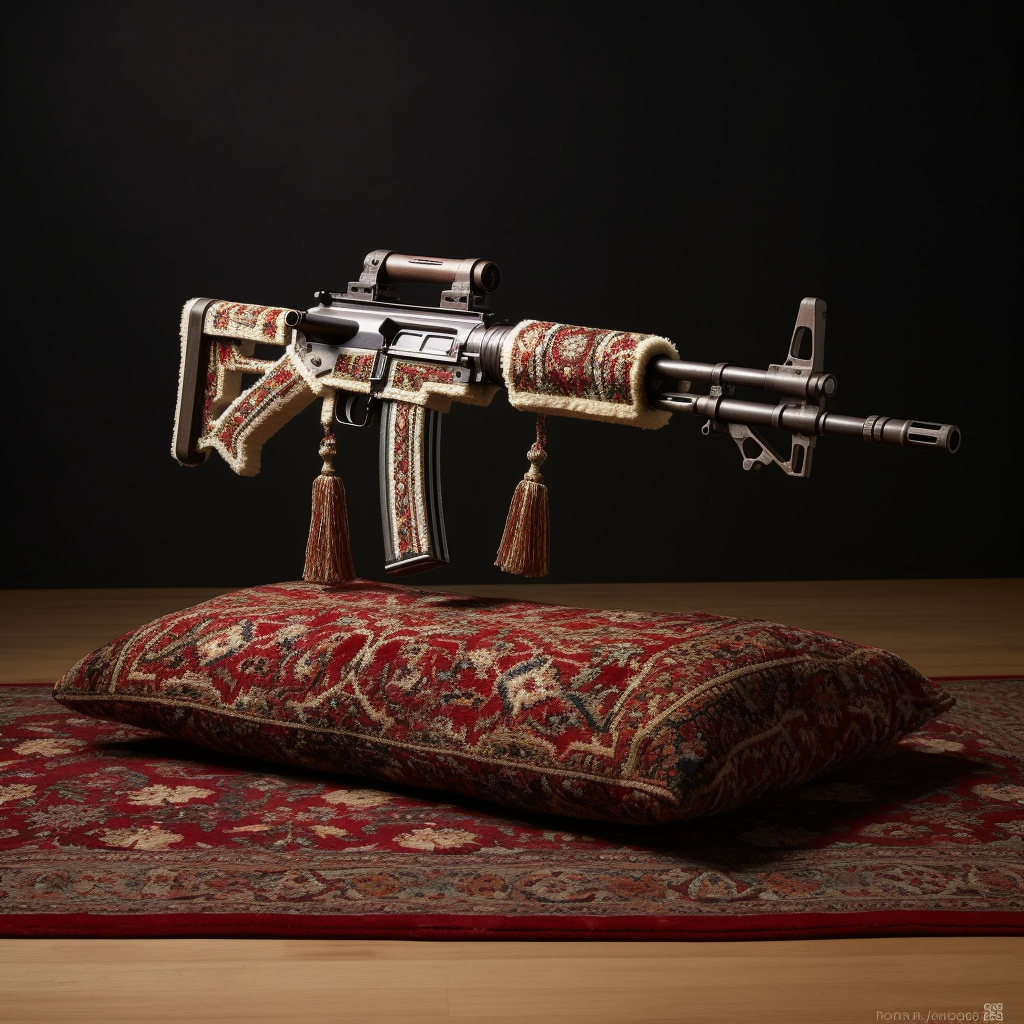
As for the impact he aims to make as an artist, Ali’s aspiration lies in creating lasting memories and transforming narratives through fruitful dialogue. “I’d love to be remembered for changing perspectives or at least creating dialogue that transforms that narrative to something constructive or timeless.”
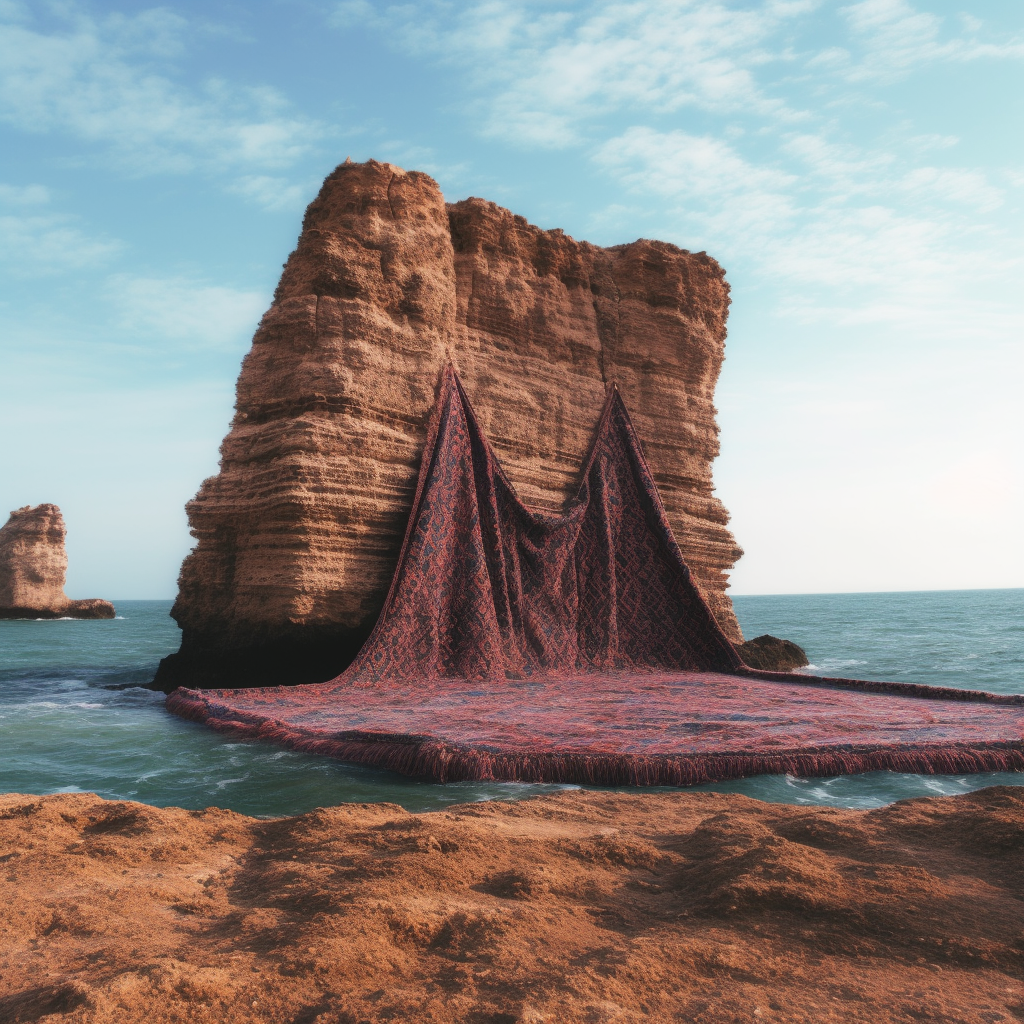
Ali Cha’aban’s artistic journey is a testament to the power of self-expression, challenging conventions and sincerely uplifting cultural narratives. With his unique vision and thought-provoking creations, he invites viewers to engage in a dialogue that transcends boundaries and fosters understanding. As an artist, he intends to promote the free flow of ideas and concepts while transcending the limitations of different fields and industries. According to him, artists have the ability to embody culture and act as citizens of the world.
Check out more of his work on his website, alichaaban.com.








